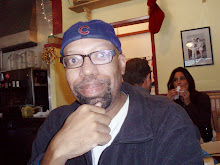 The World Series is over, and the
The World Series is over, and the One of those things, by the way, is not the "neutral site" theory, the idea of playing the Series in a warm(er)-weather location to lessen the chances of major interruptions like the Philadelphia rainstorm that suspended Game 5 on Monday night and pushed the final three innings back two days. There are those who would convert the World Series into a Super Bowl situation, where the best four-of-seven contest would revolve between locations that have a nicer climate (L.A., San Diego, Miami) or no climate (domed stadia in Houston or Phoenix or even Toronto) rather than the way it's been for the past century - home-and-home. These Chicken Littles, to be blunt, are cracked in the head. Some of the biggest thrills in baseball playoff history come when the home team clinches the pennant or the Series on their home turf in front of the fans who have lived and died with them for the past six months. The moments are imprinted in our memories: Bill Mazerowski. Chris Chambliss. Tug McGraw. Joe Carter. To ask fans to travel hundreds of miles away from their homes and their jobs for more than a week - including some uncertainty regarding Games 5, 6 and 7 - is not only cruel, it's impractical in this day and age. And news flash - the World Series has always been played in October, when things tend to get a little nasty and chilly. The same as in April, when the season has always started. The neutral site theory is a knee-jerk response to a situation that rarely happens, a weather interruption during the final series of the baseball year.
If those guys are so worried about the cold and the wet getting in the way of a baseball game, they would be better served considering ways to shorten the entire season. I think one thing everyone can agree on is that the schedule, as enjoyable and thrilling as it may be, is too long. Next year, thanks to the World Baseball Classic delaying spring training, the seventh game of the World Series in Wrigley Field (what?) is set for Nov. 5. The last and only time the Series ended in November came only because of, oh, the worst terrorist attack on U.S. soil. Understandable. But that doesn't mean it should be a regular occurrence. But this is what happens when The Powers That Be in baseball keeping adding games in the quest to line their pockets. Another round of playoffs - check. Extend the League Championship Series - check. Get rid of doubleheaders - check. As usual, in the process the big bosses have bitten themselves in their hindparts. Since they would never consider eliminating a round of playoff games, or cutting the regular season from, say, 162 to 154 games, they really must consider reviving the weekend doubleheaders. Making Saturday doubleheaders the standard rather than the exception would easily shave a few weeks from the schedule so that the season could end in mid-September, leaving plenty of time for the playoffs to proceed in potentially better conditions. And if the owners are worried about the gate, make the doubleheaders of the day-night variety, or pay for each game individually. Everyone makes their money, so everyone's happy, right?
As for the Series itself, its real problem is that the games are often inaccessible to the sport's most important fans - the newest ones. There hasn't been a daytime Series games in 25 years - and, what's more, the nighttime contests seem to be starting later and later on the clock. With the pregame shows and the pomp-and-circumstances, they usually don't start until after 8:30 p.m. on the East coast, meaning that it's rare for them to wrap up before midnight. If your son or daughter has to go to bed in the fourth inning because of school, how do you expect them to realize why baseball is so fun and cool. No wonder more kids are gravitating to football and basketball and soccer and even lacrosse. One of the great things about last night's Game 5 conclusion was that the Phillies wrapped things up by 10 p.m. ET - meaning that, for the first time in a long while, many kids were awake for the celebration. Wow - what a concept.
The leadership of MLB really has to seriously considering a change in how the Series games are scheduled. The preferred M.O. would be to schedule at least one or two games for 4 p.m. ET starts, preferably on the weekend. Not only would it allow fans of all ages to watch a couple of games in full, it also could improve the weather situation since it wouldn't be as cold when the sun is shining. (And for those who say that weekend Series games would compete with college and pro football, so what? Lots of sports are on at the same time as the NFL or NCAA, including NASCAR, and I don't see them withering on the vine.) At the very least, though, the night games should be moved up to 7 or 7:30 starts. That extra 60 or 90 minutes could make a load of difference. And the local affiliates, who may bitch about the loss of that important hour of local airtime, can live for a few days with the situation.
Bud Selig is not my favorite baseball commissioner of all time, far from it. But, in the final years of his leadership, if he would have the courage to push these modest reforms in an effort to revitalize the crown jewel of his sport, that would be a legacy that would convince even me to reconsider his place in baseball's history. I'd probably still hate him, but not so much.




No comments:
Post a Comment